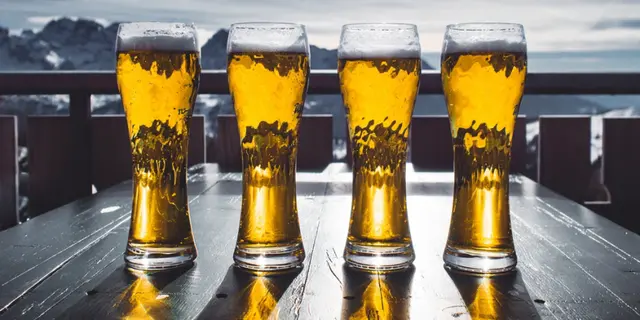Two members of Lithuanian parliament (MPs) said on Tuesday that recent major retailers' decisions to demand to see the identity cards of customers buying alcohol, lacked reasoning and vowed to take legislative measures against the step.
Both MPs registered corresponding law amendments which should prevent retailers from asking to prove their identification, irrespective of age, when buying alcoholic beverages.
Vytautas Kamblevicius, MP from the Law and Justice Party, initiated amendments to the Code of Administrative Offences which anticipates penalties amounting to 30 to 50 euros (about 34 to 56 U.S. dollars) for asking buyers to show identification documents.
"I believe this is the only way to stop this absurd demand which was hastily introduced by the Lithuanian Association of Retail Companies together with the ministry of health," Kamblevicius was quoted as saying by local media.
On Sept. 2, a group of the largest retail chains in Lithuania started to ask all buyers to show ID documents specifying their age. The retailers claimed their aim was to prevent sales of alcohol to minors and increase public awareness.
The retailers' campaign is based on a memorandum, signed by seven retail companies with the Lithuanian minister of health in June. Lithuanian market's newcomer Lidl did not join the campaign.
Gintaras Tamosiunas, a member of the Labour Party Political Group at the parliament, registered amendments to the Law on Alcohol Control which would prohibit sellers from asking older people to show identification when buying alcohol, ELTA news agency reported.
According to the politician, major retailers publicly claim the goal of a memorandum they signed is to minimize the possibility of adolescents buying alcohol. Yet he questioned why the elderly were being asked to prove their age.
Some politicians argued that demanding every buyer of alcoholic beverages show identification was redundant and criticized the move, claiming it would not help tackle alcohol abuse in the country.
"The question is who benefits from all this confusion and humiliation of buyers," Kamblevicius said.
According to existing Lithuanian laws, sellers of alcoholic beverages are obliged to ask to show ID if there are doubts the buyer is younger than 18 years of age. In Lithuania, minors under the age of 18 are prohibited from consuming alcoholic beverages or from having them.
Meanwhile, retailers insist the ID requirement will help tackle the alcohol addiction problem in Lithuania.
"This campaign is aimed at preventing the sale of alcohol to juniors, increasing society's awareness and responsibility; it will take time, however, residents will get used to this," Rosvaldas Gorbaciovas, director of corporate affairs at the retail chain Maxima, was quoted as saying by regional newspaper Sekunde.
(APD)
 简体中文
简体中文



